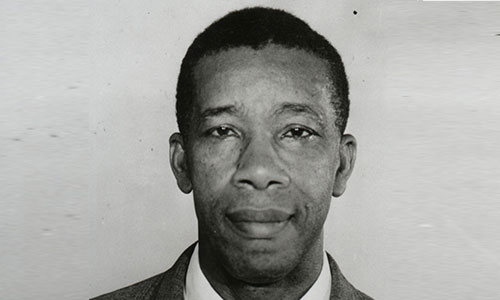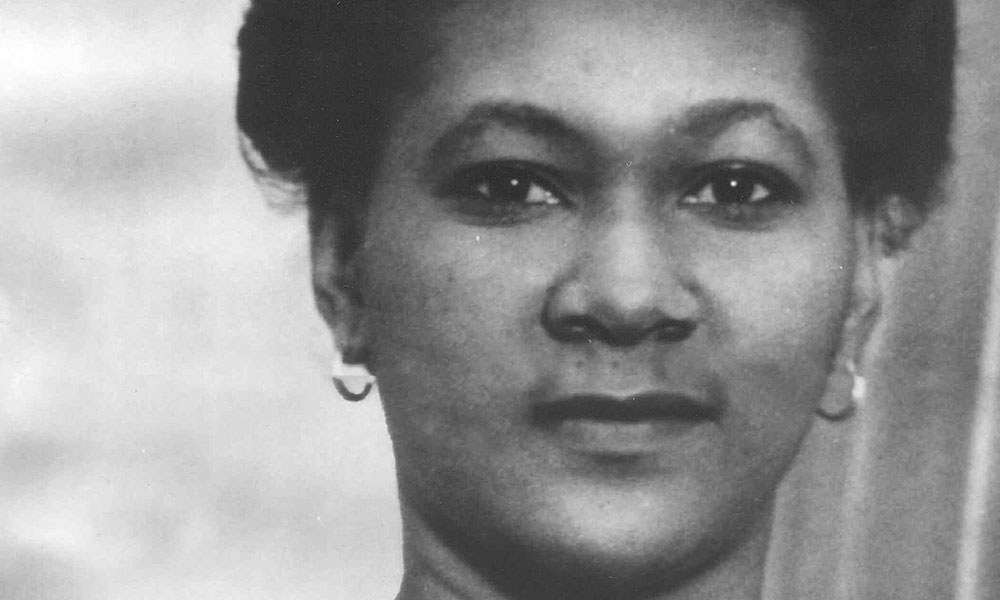
Joseph Nathaniel France was born on the 16th September 1907 to Thomas and Mary France at Mt. Lily, Nevis. Thomas who was a road driver and a small plot-holder sent his son regularly to Combermere School.
At age thirteen, young France went to St. Kitts to spend his school holidays with relatives in New Town. But before the vacation was over he was offered a job as office boy with the St. Kitts-Nevis Universal Benevolent Association at its office on Cayon Street. His parents allowed him to take the job on condition that he continued his education at evening classes in St. Kitts. This, he was able to do because the UBA ran a night school and young France attended regularly. He also supplemented his tiny income by grinding the organ at the Apollo Theatre to accompany silent films.
In 1921, the UBA started publishing the newspaper The Union Messenger under the editorial direction of J. M. Sebastian. France started his career as a printer for this newspaper and contributed to its day to day issues as a reporter, columnist, and short story writer. The paper in fact provided him with an outlet for self-expression and for putting into practice some of the things that he had learnt as a member of the Mutual Improvement Society. In its quarterly syllabus, the society included public speaking and debating, essays, appreciation of poetry, and musical evenings. On such evenings, France played the piano and sometimes the clarinet. He also played the piano at the cinema during the showing of silent movies. After Sebastian’s death in 1944, France became the editor of The Messenger until it ceased publication in the 1960s. He was also editor of the Workers’ Weekly from 1942 to 1956.
With the formation of the St. Kitts Workers’ League in 1932, France started taking an active part in labour programmes designed to make the working class aware of the need to become more organised. Public meetings. Leaflets, the distribution of British Socialist Literature and petitions to the Colonial Office were all part of the order of the day for members of the Workers’ League. As one of its directors, France found himself, along with other leaders, cast in the role of peacemaker during the Buckley Riots of 1935. Two years later, France was among those campaigning for the right to vote and then promoting the election of Challenger and Manchester to the Legislative Council. Then in 1938, he was one of the members of the League to give evidence in front of the Royal West India Commission. When during that same year, W.A.H. Seaton died, France was chosen to fill the position of secretary of the League.
The League’s activities were aimed at the improvement of conditions for workers both in and out of the workplace. The agitation for change in trade union legislation was intended to assist with the former. In 1940, following the passing of the Trade Union Act, it became possible for a trade union to operate without legal restrains. The League launched the St. Kitts-Nevis Trades and Labour Union and J.N. France became its first General Secretary. France helped to shape the union into the nineteen sections that it now has and his experience in industrial conflicts of various kinds was invaluable in negotiations and conciliation of issues with which the Union had to deal.
In 1946 France along with Robert Bradshaw and Maurice Davis was elected to the Legislature. He served as Member for Social Services from 1952, and when the ministerial system was introduced, he became Minister for Social Services. Under his portfolio fell education, health and social affairs. When in 1967, the new hospital was built at Buckley’s it was named after him, in honour of the invaluable services he rendered in this field. France successfully contested nine general elections between 1946 and 1984. He helped in the passage of such land-mark laws as those that instituted the National Provident Fund, and CEMACO and others that provided for the protection of wages for domestic servants and shop assistants, and the acquisition of the sugar lands. France was a member of the Editorial Board of The Labour Spokesman and contributed regularly to its publication. Although he did not contest the General Election of 1989, France patronage of Sam Condor ensured an easy transition from one Labour candidate to another. Joseph Nathaniel France continued to occupy the position of General Secretary of the Union until his death on the 21 st Mat 1997.




